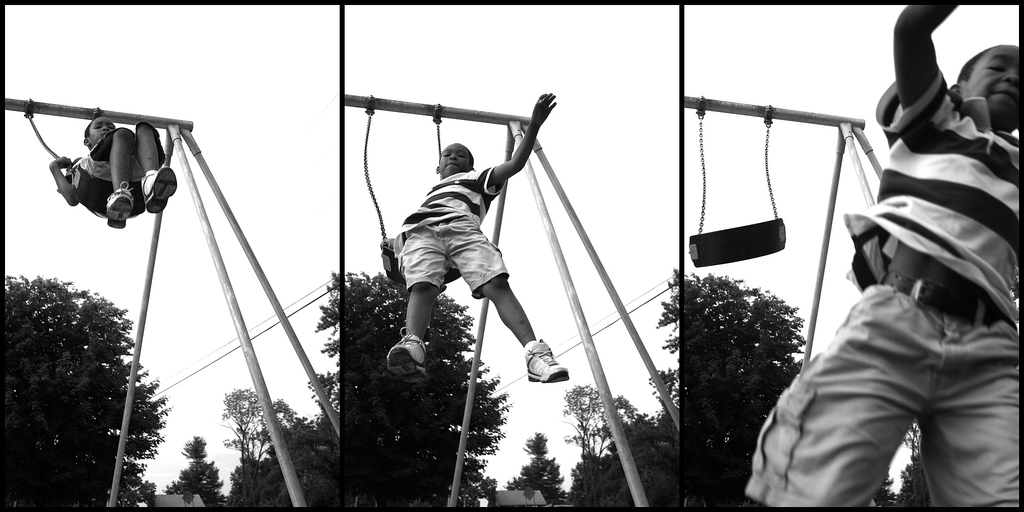As much as we wish we didn’t have to see our children in pain, sometimes things happen–a grandparent dies, a beloved family pet has to be “put to sleep”, or a friend moves away.
These situations, when our child comes face-to-face with loss, death, or grief, can be powerful learning opportunities, deepening your relationship with your child. However your child needs your help to get “positive parts” of the grief experience—the learning and the strengthening of the parent-child bond.
Making matters even more complicated is that, depending on the situation, you may be going through your own grief journey and be processing your own feelings.
Even if you aren’t helping your child grieve at this time, you’ll want to read this whole email and the blog because you’re child will inevitably experience a loss. You’ll be thankful that you have some tools at that time, especially if—at that point—you are also making sense of your own feelings too.
We got this email recently from a dad who was in this very same situation. He and his son were dealing with a loss together.
My girlfriend moved out. She was a second mom to my 4-year-old son. How do I help him through this? Do I show my feelings in front of him or should I “be strong”? When she left she told him that she’d still be involved in his life but we haven’t heard from her in two weeks. Do I contact her? Thanks for your help.
We’ve come up with 6 things that you can do to help your child saying “goodbye” to a special adult. These 6 things can be adapted to fit any situation in which your child is experiencing a loss.
- Expect him to have a variety of feelings and check in with him. After any significant loss of relationship, through death or otherwise, your child will go through a grief process. These steps may include anger (directed at you, his life, the person/thing he’s grieving, or himself), sadness, confusion or questioning. It may be difficult to be present for him, as you are also going through your own grief process. However, to the extent that you can, check in with him occasionally to see if he wants to talk about anything. You can simply say, “Our house feels really quiet now that Jenny is gone. I was thinking about her today and I felt sad. How has it been for you?” You don’t need to fix any of his problems or help him “get rid of” his feelings; your job is to listen openly and let him know that you understand. His feelings will work themselves out with your understanding support. Saying things like “Ah, that makes sense to me” and “You didn’t want that to happen . . .” and “I miss her too” or just “hmmm” and “ah-ha” will help him to know that you understand his feelings. You empathy and listening could be all he needs to work through and make sense of his feelings.
- Explain what happened in an age appropriate way. At 4 years old, kids are actively forming ideas about how friendships and relationships work. Young children especially are questioning, “Who are my friends? What does it mean to be a friend? Can we disagree and still be friends? Can we like different things and still be friends?” How you explain the “break up” to your son depends a lot on your specific situation. Be aware that the way that you talk about the loss of your relationship will impact how he makes sense of relationships and friendships in the future. You might say something like, “Jenny and I decided to stop our relationship. She is going to live in another place. We are both really sad about it. I don’t know how much we will see her in the future or talk to her. She cares about you, but it might bring up so many sad feelings that we don’t see her very much. She isn’t going to come to your baseball games or pick you up from school any more.” If he asks why she moved out give him as full of an answer as will make sense to him, making a judgment call about which “adult details” to share. For example, saying, “She left because she wanted to live with her friends” is not as clear of an explanation as saying “She left because she doesn’t want to live with me anymore. We couldn’t get along. She’s not coming back.”
- Assure him that this was not his fault. Children often have magical thinking, giving themselves “super powers”. They may blame themselves for things that are not their fault and may hold themselves responsible for causing a car accident, a death, or a loss of relationship. Assure your son that he did not cause your girlfriend to move out. Your break up with her was in no way caused by him.
- Remind him that you are in his life forever. Explain to him that the level of commitment to him that you have as his dad, is different than the commitment to him that your girlfriend had. You might say, “Jenny wasn’t your mom or dad, even though she did a lot of the same things that I do—picking you up from school, making meals, hugging and kissing you. Because I’m your dad we are going to be together forever. I’m never, ever going away. I will always be your dad and you will always be my son.”
- Let him take the lead with the future of their relationship. Although your girlfriend expressed an interest in being in your son’s life, you haven’t heard from her in a couple of weeks. Just because she hasn’t reached out to your son doesn’t mean that your son can’t reach out to her. Your son can still communicate with her by writing a letter or an email, drawing her a picture, or sending a card. Offer these options to him so that he knows he get some closure for himself (if he still has things that he hasn’t said to her). Letters are a gentle way for her to get messages from him and so that she can decide how involved she wants to be in his life going forward. Let your son know that you don’t know if she will answer his letters and that you’re not sure how often he will be seeing her in the future. Helping him manage his expectations could help lessen disappointment later on.
- Model how to express feelings. You have a wonderful opportunity to show your son how to deal with sadness and loss. It’s okay to cry in front of kids and to tell them that you are feeling sad. It’s important for kids to know that they did not cause your sadness and that they are not responsible for making you feel better. While we don’t recommend stifling feelings, we also don’t recommend unregulated outpouring of feelings, which could be confusing, scary, or troubling to children. Help him make sense of your sadness or tears by explaining, “I am having some sad feelings because I was remembering how we used to be together, all three of us. Sometimes you might see me cry a little when I think about it. I know that after a while these feelings will go away. I know that I can do things for myself to help me feel better. You didn’t make me feel sad, and it’s not your job to make me feel better. Let’s think of fun things that you and I can do together right now.” If your strong feelings are bubbling up uncontrollably, or interfering with your ability to do things, seek out an empathic adult or a professional who can help you process things.
Be gentle with yourself,
Cecilia and Jason
P.S. If you’ve helped your child deal with a special person exiting their life, what did you do that worked? Make a comment and share your thoughts. Help light the way for someone else. Thanks!










Thanks Happy Family for this particular article. Our long time family Pomeranian Naya has recently become ill and will soon pass away. Helping our 7 yr old and 6 yr old through the logic and emotions of this natural sequence of events has been challenging. Kids ask honest questions about death and want honest answers. We’ve expressed a full array of emotions thus far and we haven’t event put Naya down yet. We’ve done a couple of things the kids have been receptive to.
1. I asked the kids to help make a rememberance picture frame of Naya to display in our house. This prompted us to go through old photos of our dog and smile and reminisce about good times spent with her. We put Naya’s name tag & license tag in our frame.
2. I started to hold Naya in my arms every night before bedtime. When my 7 yr old asked “Why?” I simply said “It’s ok to hold Her everyday to tell her we love her.” They promptly wanted to sit with us each night to tell her the same.
3. I asked my kids where they would like to say “goodbye” to Naya — at home (before going to hospital) or at the hospital. Each kid thought it through in their head and asked appropriate questions as to “what will happen” at the hospital. They both decided they wanted to come to the hospital to say farewell when the time comes.
We are hoping for a peaceful passing of our beloved Naya and to support our kids through the emotions of this event.
Thank you for sharing these beautiful ways to say good bye to a beloved pet. We hope that this is a gentle transition for all of you. Your children will no doubt benefit from all of these conversations and your sensitivity. Well done.